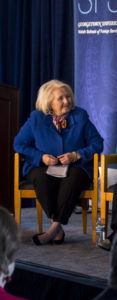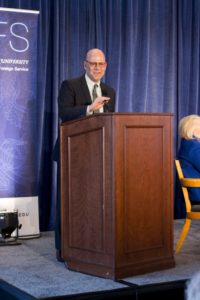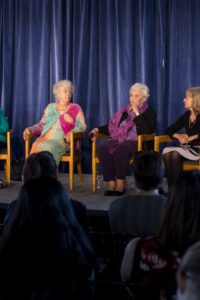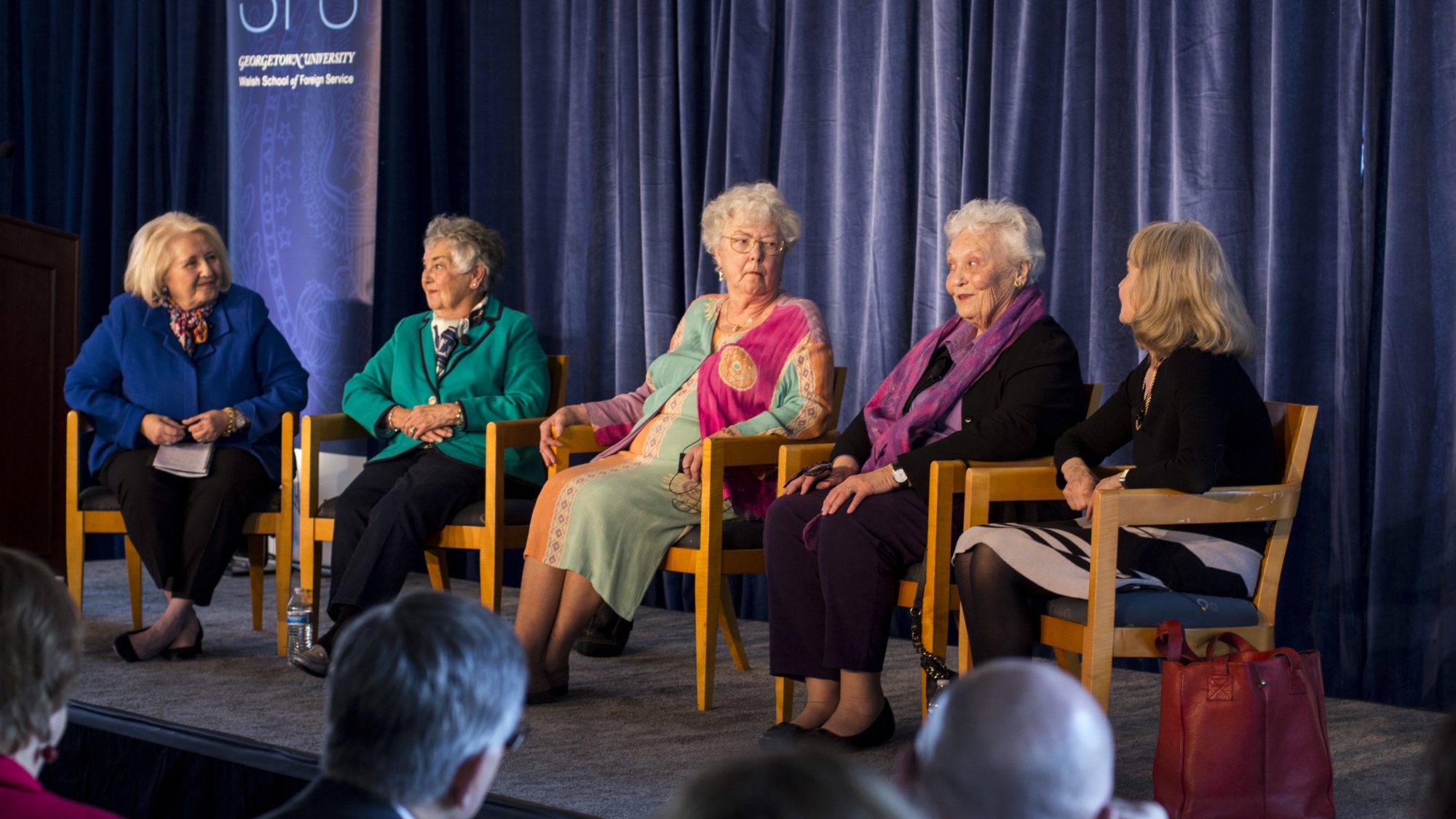
The alumnae panelists were some of the women featured in the 2017-2018 SFS Magazine cover story, “Changing the World: How the First Women of SFS Led the Way,” which told the stories of some of the first women to be enrolled as full time students at SFS in 1954. The class of women that entered in 1954 broke new ground—never before had women taken classes on Georgetown’s main campus with male students during the regular daytime program at SFS. Women had taken classes at SFS during World War II and later in the Institute of Language and Linguistics beginning in 1947, but the Institute was located on its own campus and women could only take night classes on the main campus.
These women broke ground not only for the School of Foreign Service, but also for Georgetown—as Georgetown College did not allow women to enroll until 1969. Until 1970, a quota system limited the number of women students who could attend SFS. In fall 1954 the school admitted twenty-five women. By 1969, the last year of the quota system, the school was admitting women at the rate of one woman for every eight men.
“Currently in our applicant pool to the School of Foreign Service, sixty percent of the applicants are women, as opposed to the twenty-five students who came in 1954,” said Dean Joel Hellman in his remarks introducing the panel. “These brave, courageous souls came to campus in a class that was capped at twenty-five. It sounds like it was capped at twenty-five because the women were doing so much better than the men, at that time, that they were worried that having ‘too many’ would change the shape of the campus.”

“Some of the pioneering work makes you resilient,” Verveer said. “If you can make it through the gauntlet that certainly these women had to, you really can put up with just about anything. You have to take yourself back to another time. In 1954, the women’s movement was just a few years later going to come into its own—the civil right’s movement, the anti-war movement. But these women were at Georgetown before all of that.”
Several of the women on the panel said they did not even know when they arrived at SFS that the school had only a few women. “The brochure that came to my house, at the bottom someone had typed in, ‘Women are now admitted to the day school,’ which should have been clue number one, but it went right over my head,” said Barbara Berky Evans (SFS’58). “The first year was miserable. There were no women here! I had no friends! It was a pretty lonely time until some of these other ladies showed up.”

The panelists expressed how excited they were by the opportunity to come to Washington, D.C. and take such interesting courses. “All I remember was the course-listing, and it sounded so exciting,” said Helene Gettler Mallett (SFS’59). Barbara Hammes Sharood (SFS’58) agreed, “There were all kinds of classes that would be offered—and Washington, D.C.? What an opportunity. It had its opportunities, it also had its challenges, but it was worth doing. We all felt at the end that it was definitely worth doing and we learned a lot.”
“By the graduating class of 1960, first in the class was a woman, second in the class was a woman, I happened to be third, and the fourth was a women,” Paula Wiegerd Tosini (SFS’60) said. “And that year, Georgetown had four Fulbrights. One from Foreign Service, two from the Graduate School, and one from Law. And guess what? They were all women.”
“The question now is not if we can do it, but rather are we getting paid the same amount for it, are we being allowed to work without harassment,” Lulu Garcia-Navarro (SFS’94) said in her remarks, reflecting on her own time at SFS, her career, and the comments of the alumnae panelists. “Where are we now in this moment?” Garcia-Navarro asked in conclusion. “I look at these women on the stage and you broke that ceiling, but I look at these women in the audience, the next generation, and I do think there are many ceilings to be broken.”

